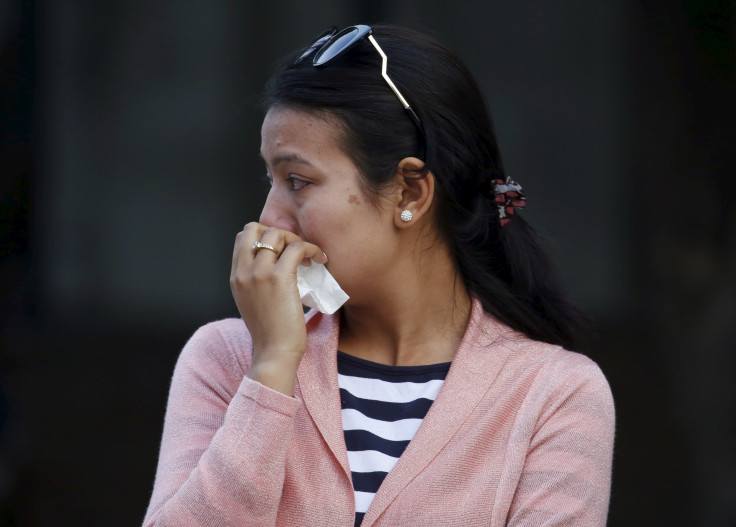Young Women Cancer Survivors Need To Know More About Freezing Eggs, Other Fertility Preserving Options

Diagnosed with cancer, many young women may find it difficult or impossible to undergo fertility preserving procedures prior to their treatment. Afterward, some of these same women are still capable of having a child, even if they may be at risk for premature menopause. This represents a second chance to pursue available options for preserving fertility, yet many women, though they’ve expressed a desire to someday have a biological child, report feeling conflicted.
What contributes to this inner struggle?
A new study indicates many young survivors have not received enough information about their fertility and possible options for preserving it.
“We found that greater levels of unmet information needs and reproductive concern contribute to increased conflict,” wrote the researchers at Memorial Sloan Kettering, who further explained post-cancer care should include reproductive health counseling to support survivors in making informed decisions.
Fertility Preservation
Sometimes cancer treatment will harm a woman’s fertility. These effects may be temporary or permanent; they may occur immediately or months after treatment. Naturally, surgical removal of a woman’s uterus or ovaries would compromise a woman’s fertility, yet non-surgical treatments, such as chemotherapy and radiation, can also affect her hormone levels, her eggs, or the functioning of her ovaries, uterus, or cervix. A woman’s menstrual periods may stop or become irregular during treatment, yet even if her menstrual periods continue or return after treatment, a woman’s fertility may still be decreased or even destroyed. Another possibility: she may enter menopause prematurely.
The overall likelihood a young female cancer survivor will become infertile depends on several factors, including her age, the type of cancer she has, the type and dose of chemo she receives, and the direction and dose of radiation treatments.
Understanding these risks, some young women try to preserve their fertility. Freezing eggs or embryos are two common methods that begin with harvesting eggs. The eggs are either then frozen immediately or fertilized in vitro before the resulting embryos are frozen. Women undergoing radiation treatments may choose oophoropexy, a procedure where a surgeon moves her ovaries to a place in her body, away from where the harmful rays will be directed.
Two experimental methods of fertility preservation are sometimes used, though they have not been thoroughly researched and so cannot be recommended by the American Society of Clinical Oncology. Freezing ovarian tissue and then returning it to the body after treatment is one method. The other, ovarian suppression, stops the ovaries from working and then restarts them when treatment is complete.
Survey
The current study surveyed 346 young women cancer survivors, all roughly 30 years old, and, on average, five years post-treatment. Of these women, 56 had undergone fertility preservation pre-treatment, four post-treatment, while three tried but failed post-treatment.
The most common reasons women did not pursue fertility preservation pre-treatment were not knowing about it, feeling too distressed or overwhelmed, and cost.
The researchers focused on a separate subgroup of 179 women whose fertility status was uncertain. All of these women had not undergone fertility preservation though they either desired or felt unsure about having future children. When surveyed, 58 percent said they did not have enough information on infertility risk, 60 percent on early menopause risk, 62 percent on options to assess their fertility, 51 percent on options to preserve their fertility, and 43 percent on alternative options for building a family.
Their greatest reproductive concerns were related to potential fertility problems and the health of a future child. For example, 64 percent were concerned they may not be able to have (more) children, while 59 percent worried about passing on a genetic risk for cancer. More than half felt concerned her partner (or a future partner) would be disappointed if she could not have children, while 41 percent reported feeling stressed just thinking about getting pregnant.
Many participants reported feeling a lot of conflict around fertility decisions: 74 percent confessed a lack of clarity about their personal values related to the methods. Roughly the same percentage said they didn’t have enough advice and a third reported not having enough support to make a choice. In particular, those feeling the most conflict said they needed more information.
Some women cancer survivors describe their loss of fertility as equally painful, if not more crushing, than the cancer diagnosis itself, say the authors. It is crucial, then, to supply young women with the necessary information so they can preserve, if they wish, their fertility during any windows of opportunity before or after cancer treatment.
Source: Benedict C, Thom B, Friedman D, et al. Young Adult Female Cancer Survivors' Unmet Information Needs and Reproductive Concerns Contribute to Decisional Conflict about Post-treatment Fertility Preservation. CANCER. 2016.



























